China has signed a series of currency swap agreements since 2008, most recently with New Zealand and Uzbekistan. In an email interview, Daniel McDowell, a doctoral candidate in International Relations at the University of Virginia specializing in International Political Economy, discussed China’s currency swap agreements. WPR: Why is China pursuing currency swap agreements? Daniel McDowell: There are two reasons for these agreements. First, China is concerned about dependence on the U.S. dollar, which is used to settle about half of the world’s international trade transactions. When China accepts payment in dollars, it uses some to buy foreign goods and invests […]
China Archive
Free Newsletter

The Saudi intervention in Bahrain has upped the ante in the Saudi-Iranian cold war, crystallizing it into a wider Sunni-Shiite schism in the Muslim world. Saudi Arabia has reportedly invoked a treaty with Sunni-dominated Pakistan to secure troops to stabilize both Bahrain and its own oil-rich eastern provinces. Riyadh has also asked Turkey to make it clear to Iran that interference in the Gulf states will not be tolerated. At the other end of the spectrum, Shiites worldwide are enraged at what they see as Western duplicity in not stopping Saudi heavy-handedness in Bahrain, while showing solidarity with anti-regime protestors […]
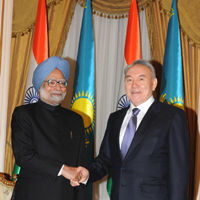
Indian Prime Minister Manmohan Singh’s April 15-16 visit to Kazakhstan marked an important step forward in India’s ties with the rising Central Asian nation. Relations between the two countries have gained momentum since January 2009, when Kazakh President Nursultan Nazarbayev was the chief guest at India’s Republic Day celebrations. India and Kazakhstan established diplomatic relations in February 1992, with then-Indian Prime Minister Narasimha Rao paying a visit to Kazakhstan in 1993. Prior to his 2009 visit, Nazarbayev had visited India in 1996 and 2002. In a positive development, Singh and Nazarbayev signed a “Joint Action Plan” on furthering the strategic […]
Ukrainian Prime Minister Mykola Azarov recently met with Chinese Premier Hu Jintao in Beijing, where the two pledged to increase trade and strategic cooperation. In an email interview, Florent Parmentier, an academic adviser and lecturer at Sciences Po, discussed China-Ukraine relations. WPR: What is the extent of diplomatic and trade relations between China and Ukraine? Florent Parmentier: Ukraine’s interest in China is relatively new, and vice versa: The boom in trade dates back only to 2008. Yulia Tymoshenko, then prime minister of Ukraine, was the first to develop connections with Chinese leaders and notably met with Chinese Vice Premier Zhang […]
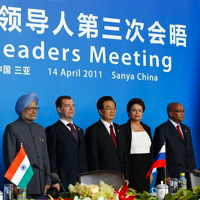
Representing around 40 percent of the world’s population and nearly a quarter of its economic output, Brazil, Russia, India, China and South Africa — the so-called BRICS countries — came together last week for a leaders summit to show off their growing global heft. The joint statement produced by the one-day meeting on China’s southern resort island of Hainan underscored the need for a realignment of the post-World War II global order based on the untrammelled supremacy of the U.S. The governing structure of international financial institutions, the statement said, “should reflect the changes in the world economy, increasing the […]

The Obama administration has begun talks with Afghanistan designed to quell the Karzai government’s fears about being abandoned by the West come 2014. Those talks are said to involve negotiations for long-term basing of U.S. troops involved in training Afghan security forces and supporting future counterterrorism operations. This can be seen as a realistic course of action, given our continuing lack of success in nation-building there, as well as our inability — although perhaps unwillingness is a better term — to erect some regional security architecture that might replace our presence. But there are good reasons to question this course. […]
Vietnam’s defense minister traveled to China last week to meet with the vice chairman of China’s Central Military Commission, and the two countries signed a series of bilateral economic agreements later in the week. In an email interview, Brantly Womack, a professor of politics at the University of Virginia and author of “China and Vietnam: The Politics of Asymmetry,” discussed China-Vietnam relations. WPR: What is the current state of China-Vietnam relations? Brantly Womack: In the past 50 years China and Vietnam have been both bosom buddies and implacable enemies, which would suggest that the relationship is unstable. But China has […]
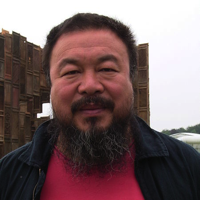
When the Arab uprisings started spreading across the Middle East, human rights and democracy activists around the world held high hopes that the peaceful push for reform would spread to the many countries where populations live under repressive leadership. After protesters succeeded in overthrowing Egyptian President Hosni Mubarak, a British member of parliament declared, “I would like to see regime change in Zimbabwe and Burma.” The sentiment was optimistically echoed by exiles of repressive states and their supporters in many places. For a moment, it seemed as if the exultant Egyptian protesters might just unleash a wave of freedom that […]

BEIJING — Much has been written about China’s huge investment in alternative energy sources. China spends twice as much as the U.S. on clean energy, and critics of U.S. energy policy have claimed that Beijing is “steaming ahead” in the field. Beneath the headline figures, however, a more complex picture emerges, in which China is struggling to translate capital investment into tangible benefits. To begin with, it is worth noting that the reason for China’s superior spending on alternative energy is that its energy needs are far more acute than those of the U.S. and other major economies. China is […]
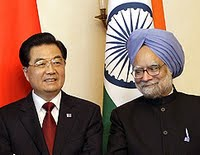
The signals emanating from the mini-summit between Indian Prime Minister Manmohan Singh and Chinese President Hu Jintao, held on the sidelines of the recently concluded BRICS conference in Hainan, China, were largely positive. The leaders both showed an interest in arresting the downward slide in bilateral relations that had lately touched a low. Ties between the two Asian neighbors have been bedeviled by the infiltration of Chinese soldiers into Arunachal Pradesh, China’s intrusion into some areas of Pakistan-occupied Kashmir and Beijing’s issuance of stapled visas to residents of Jammu and Kashmir entering China. Piqued by these developments, India had suspended […]

Although events in the Middle East confirm that the power of an angry crowd in a public square remains potent, the Internet is fast becoming the medium of choice for spreading political ideas. The number of global Internet users has doubled during the past five years, and now exceeds 2 billion people. In response, governments worldwide are seeking new means to influence and often control this discourse. Freedom House’s newly released report, “Freedom on the Net 2011: A Global Assessment of Internet and Digital Media” (.pdf), shows how governments have employed deviously creative tactics to control Web sites, blogs and […]
The Chinese government’s decision, reportedly made at the highest levels, to arrest not only world-renowned artist Ai Weiwei, but also several of Ai’s lesser-known associates, raises the question of what criteria, if any, Chinese authorities use to determine who to target with such crackdowns. Understanding the political calculus behind the crackdowns is no easy task, according to Iain Mills, a Beijing-based World Politics Review contributor. “It’s ambiguous and totally arbitrary, really. There is no apparent logic as to when they decide to arrest someone,” Mills told Trend Lines earlier this week, noting that “probably 90 percent of those arrested or […]
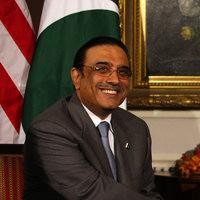
With last month’s approval by the International Atomic Energy Agency (IAEA) of a safeguards plan, China is set to construct the Chasma-3 and Chasma-4 nuclear reactors in Pakistan. By supplying the two new nuclear power plants, however, China will be in direct contravention of its nonproliferation commitments. Under the 1992 revised guidelines of the Nuclear Suppliers Group (NSG), a global export-control body that China joined in 2004, transfer of nuclear technology and material from a NSG member state can only take place under the provisions of full-scope safeguards. These safeguards require that all nuclear facilities in the state receiving nuclear […]
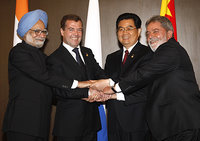
South Africa will formally join the BRIC grouping of Brazil, Russia, India and China at their April 14 summit in Hainan, China. Echoing previous meetings, the major focus of the summit will be to consolidate the impression that the BRICs are the rising force in the global arena. The June 2009 Yekaterinburg summit was hailed as an “historic event” by Russian President Dmitry Medvedev and was punctuated by a call for “the emerging and developing economies [to] have a greater voice and representation in international financial institutions” (.pdf). Then-Brazilian President Lula da Silva, host of the April 2010 summit, upped […]

This is the second of a two-part series examining China’s telecom sector. Part I examined the domestic telecom market. Part II examines Chinese telecoms’ international expansion. SHANGHAI — Building on strong domestic development, China’s telecommunications sector has enjoyed a period of impressive international expansion over the past decade. Under the banner of the “Go Global” campaign, national flagship companies have built up their international operations through a range of overseas purchases and cooperative ventures with foreign partners. Greater technological capabilities and cost advantages have also allowed Chinese firms to rapidly establish themselves as important vendors of telecom products and services […]

Much of the global perception of America’s long-term decline as the world’s sole surviving superpower is in fact driven by our fiscal decline. That’s why I was disturbed to hear Democrats so quickly dismiss GOP Sen. Paul Ryan’s bold, if flawed, federal budget proposal on the grounds that it would “end Medicare as we know it.” Frankly, arresting our decline means ending a lot of things “as we know them.” That’s simply what being on an unsustainable path forces you to do. But as difficult as reforming federal entitlement programs will be, it is absolutely necessary, because a look at […]

This is the first of a two-part series examining China’s telecom sector. Part I examines the domestic telecom market. Part II will examine Chinese telecoms’ international expansion. SHANGHAI — In less than 20 years, the Chinese telecommunications sector has developed from a primitive government monopoly into the largest cellular and Internet communications market in the world. This change is a testament to the country’s rapid social and economic development as well as the increasing sophistication of state-owned enterprises (SOEs) in the industry. But with domestic markets rapidly approaching their saturation point for basic services, sustaining this growth will require deepening […]
